Crypto Exchange Risk Assessment Calculator
How Risky is Your Crypto Exchange?
This calculator helps you assess the risk level of cryptocurrency exchanges based on key security and transparency criteria.
Risk Assessment
Recommendation
Quick Takeaways
- Zedxion Exchange claims $1 B daily volume but has no verifiable on‑chain data.
- Regulatory footprints are missing; no licenses listed in major jurisdictions.
- Security model relies on hot‑wallets, a red flag compared with cold‑storage‑heavy rivals.
- User reviews are scarce and heavily negative; many report lost funds.
- When measured against Binance, Coinbase and Kraken, Zedxion falls short on transparency, liquidity, and trust.
What Zedxion Says It Is
Zedxion Exchange is marketed as a hybrid digital‑asset platform that blends a cryptocurrency exchange with a token‑issuance ecosystem. According to its App Store description, the service supports TRC20, ERC20 and BEP20 tokens, offers spot, contract, IEO, ETF, staking, margin, loan, P2P and fiat‑on‑ramp options, and claims to list 154 coins. The company also touts a partnership with “Market Synergy” for institutional‑grade connectivity, and it says the platform runs on the TRON blockchain to deliver ultra‑fast, low‑fee transactions.
Reality Check: Claims vs. Verifiable Data
When you look at independent trackers like CoinGecko or CoinMarketCap, Zedxion’s claimed $1 B 24‑hour volume simply does not appear. Those sites list zero trading activity for the exchange, and the ZEDXION token itself only shows up on three low‑liquidity markets. By contrast, Binance processes roughly $40 B per day, while Coinbase reports around $1.8 B.
The platform’s technical promises-high TPS, secure hot‑wallet integration, geography‑based KYC-have no publicly available whitepaper, API docs, or audit reports. Even the blockchain explorers for TRON, Ethereum and BSC reveal almost no transactions tied to Zedxion addresses, suggesting the on‑chain activity is either negligible or deliberately hidden.
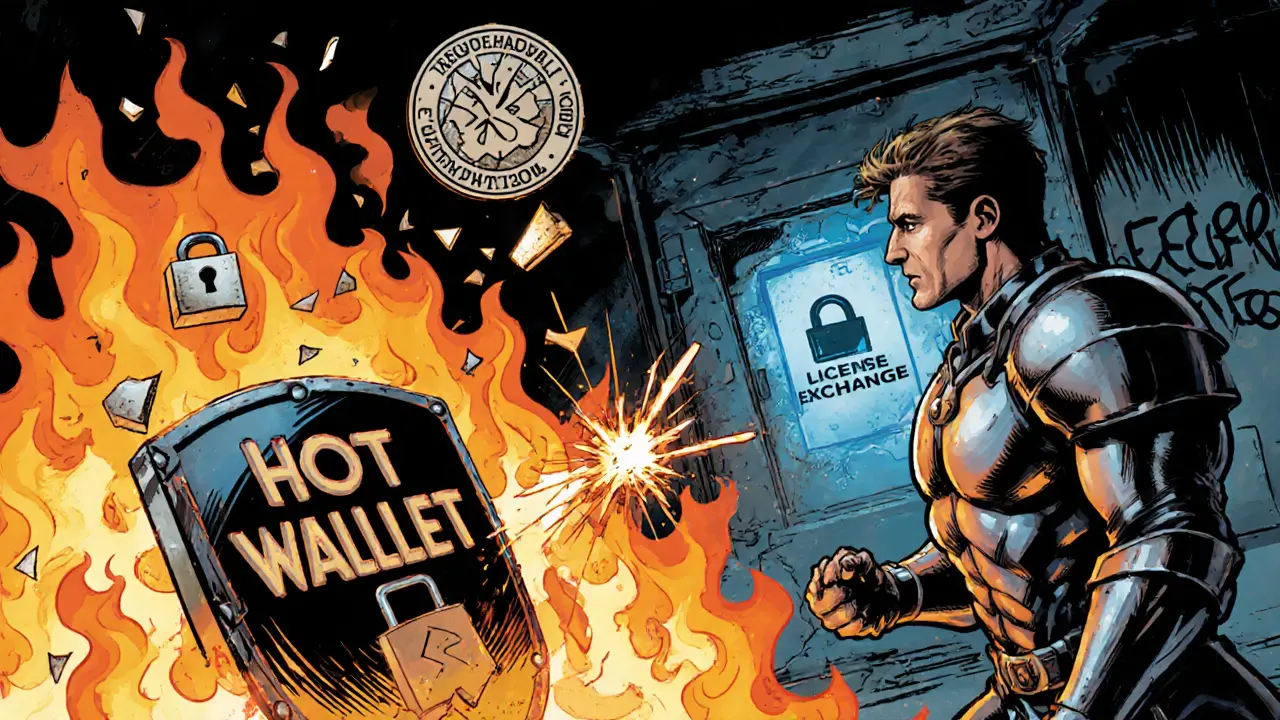
Security and Regulatory Footprint
Security‑focused firms such as CipherTrace placed Zedxion on their “Risky Exchange Watchlist” in Q3 2023, citing inconsistent volume reporting and the absence of a clear regulatory registration. FXVerify gave the exchange a 0‑star rating, flagging it as high‑risk due to mismatched claims and zero verified user reviews.
Unlike regulated players-Kraken holds 13 global financial licenses, Gemini is NYDFS‑regulated, and Binance recently secured a Malta VFA-Zedxion shows no registration in the US FinCEN database, the EU’s ESMA registry, or any local authority. The reliance on hot wallets further raises the hack surface; reputable exchanges store the majority of assets in offline cold storage to minimize exposure.
User Experience, Support, and Community Sentiment
The Apple App Store listing (version 2.3.2, updated September 2023) shows only two reviews: one vague praise and one stark warning that the app is “pure fake.” On Reddit’s r/CryptoScams, multiple users reported deposits that appeared in the app but could not be withdrawn, with customer support unresponsive. Trustpilot records zero replies to negative tickets, reinforcing the perception of a ghosted support channel.
Because the platform lacks comprehensive documentation-no fee schedule, no API reference, no security policy-new users face a steep learning curve. Even seasoned traders find the UI inconsistent between web and mobile, and the lack of a transparent order‑book makes price discovery unreliable.
Side‑by‑Side Comparison with Established Exchanges
| Feature | Zedxion Exchange | Binance | Coinbase | Kraken |
|---|---|---|---|---|
| Daily Reported Volume | $1 B (unverified) | $40 B (verified) | $1.8 B (verified) | $2.5 B (verified) |
| Number of Listed Assets | 154 (claimed) | 5,500+ | 1,500+ | 3,800+ |
| Regulatory Licenses | None publicly listed | Multiple (e.g., Malta VFA, Singapore MAS) | NYDFS, FCA, BaFin | 13 global licenses |
| Security Model | Hot‑wallet only (high risk) | Cold‑storage majority, 2FA, SAFU fund | Cold‑storage, insurance, 2FA | Cold‑storage, DF‑module, 2FA |
| User Reviews (public) | 2 App Store reviews, many negative Reddit posts | Thousands across platforms | Thousands, mostly positive | Thousands, high satisfaction |
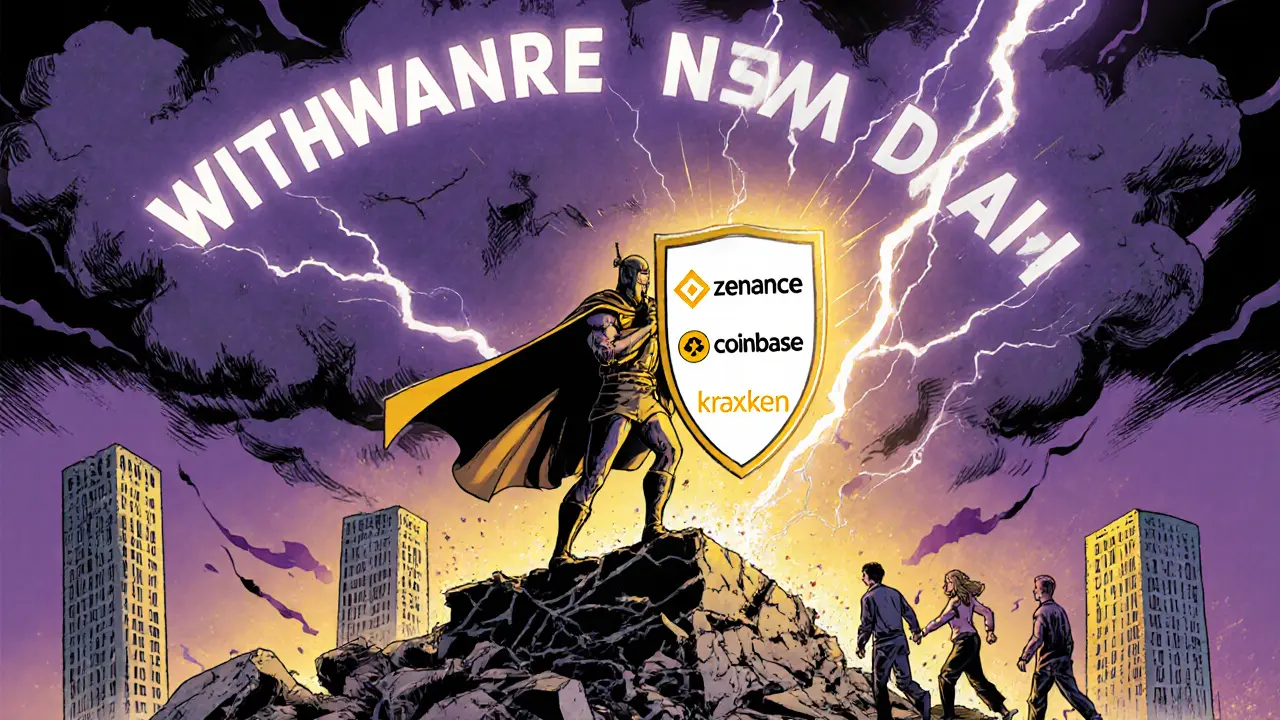
Red Flags That Signal High Risk
- No verifiable on‑chain volume despite bold claims.
- Lack of any regulatory registration in major jurisdictions.
- Security reliance on hot wallets, contrary to industry best practices.
- Zero independent technical documentation or whitepaper.
- Scarce user feedback and numerous reports of funds being trapped.
- Negative assessments from reputable firms (CipherTrace, FXVerify, Crypto Fraud Watchdog).
Practical Recommendations for Prospective Users
- If you already hold assets on Zedxion, withdraw them to a reputable cold‑storage wallet immediately.
- Test the platform with a very small amount (e.g., $10) before considering larger trades.
- Prefer exchanges that publish transparent fee schedules, audit reports, and hold recognized licenses.
- Use two‑factor authentication and enable withdrawal whitelists wherever possible.
- Keep an eye on official communications; the lack of updates after September 2023 may indicate abandonment.
Final Verdict
Based on publicly available data, Zedxion Exchange appears to be a high‑risk platform that falls short on every crucial metric: volume transparency, regulatory compliance, security architecture, and community trust. For anyone serious about protecting their crypto, sticking with established exchanges like Binance, Coinbase, or Kraken is the safer route. Until Zedxion provides verifiable audits, licensing proof, and a track record of reliable withdrawals, treat it as a speculative bet at best-and a potential scam at worst.
Is Zedxion Exchange a legitimate crypto exchange?
No. Independent trackers do not list its volume, it lacks regulatory licenses, and security experts flag it as high‑risk.
Can I safely deposit funds to Zedxion?
Depositing is risky. Several users have reported funds disappearing and withdrawals being blocked.
How does Zedxion’s security compare to Binance?
Zedxion relies solely on hot wallets, while Binance stores the bulk of assets in cold storage and runs a dedicated SAFU insurance fund.
What licenses should a crypto exchange have?
Legitimate exchanges typically hold at least one financial‑services license, such as a Malta VFA, New York BitLicense, FCA registration, or similar regulatory approval.
Where can I find reliable market data for a crypto exchange?
Use independent aggregators like CoinGecko, CoinMarketCap, or CryptoCompare, which publish verified volume, liquidity, and exchange ratings.

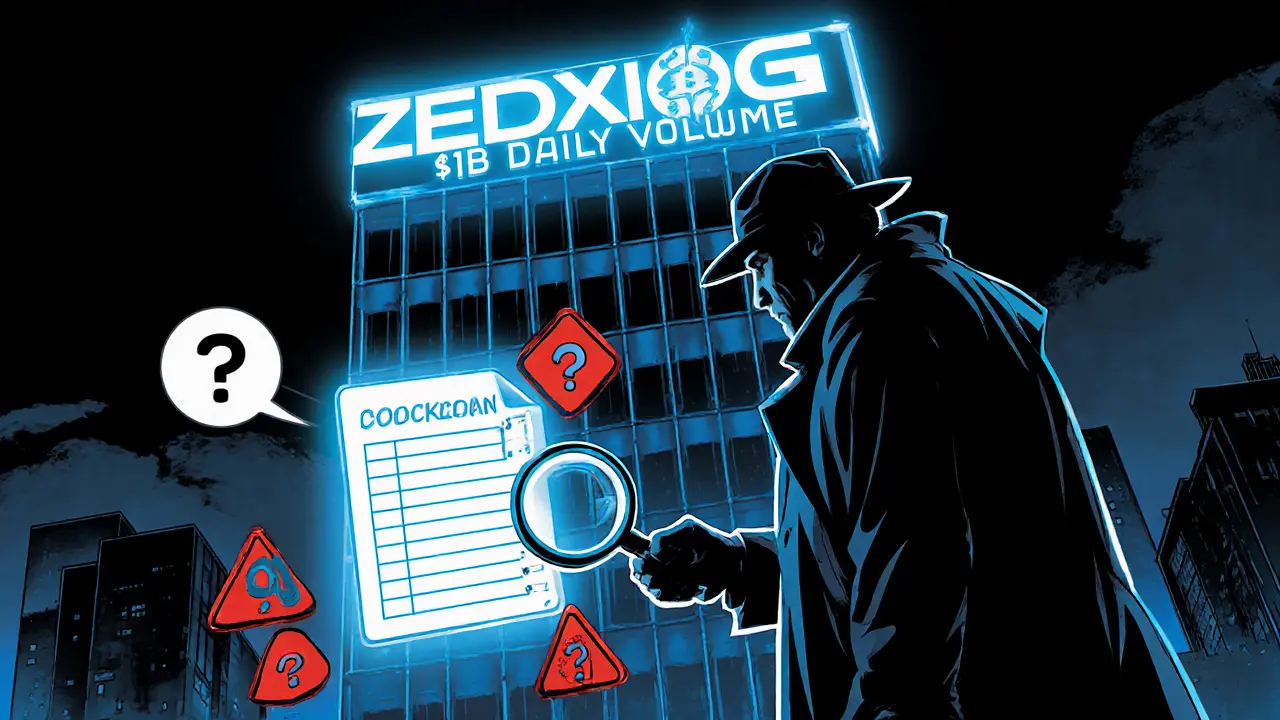
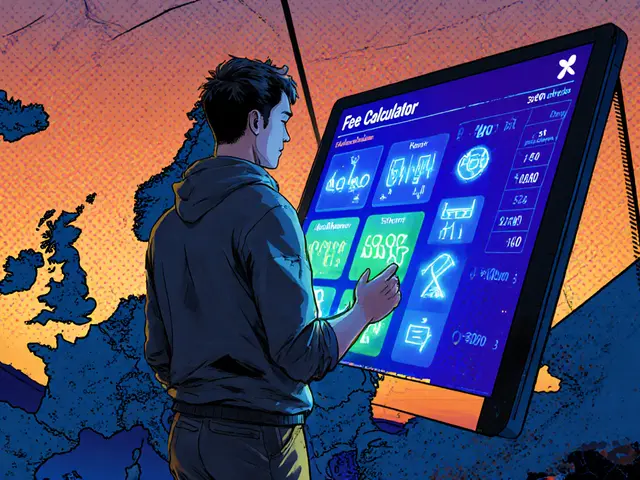
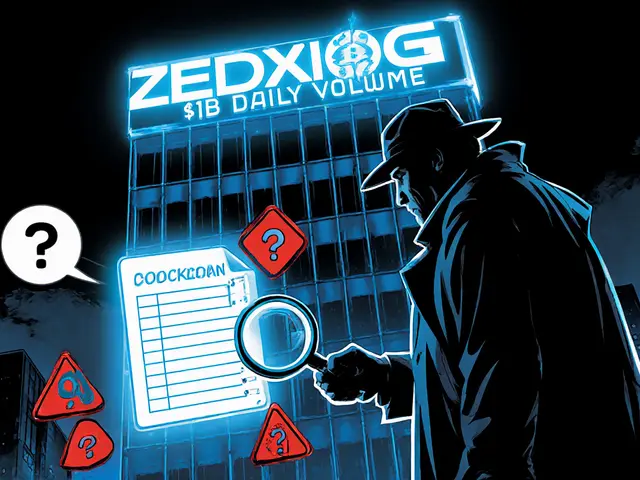
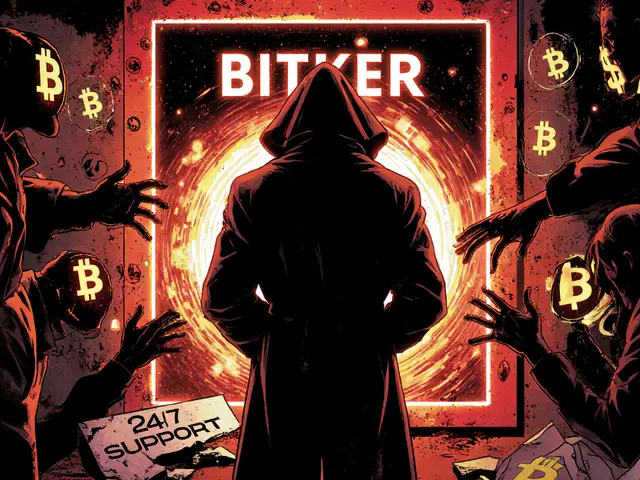
Santosh harnaval
October 25 2025Looks like Zedxion’s promises don’t line up with any on‑chain data, so I’d stay away.
Edwin Davis
October 28 2025Honestly, the lack of verifiable volume, the missing licenses, and the hot‑wallet‑only model are red flags,; you can’t ignore them,; they scream risk,; proceed with caution!
Michael Hagerman
November 1 2025Yo, Zedxion sounds like a hype train that never left the station, it’s definately a scam in disguise, and the community feedback is like a horror movie, all those lost funds are a huge warning sign, stay safe!
Jessica Smith
November 4 2025Zedxion fails every basic test for a trustworthy exchange. No licenses, no cold storage, no real volume. Users report locked funds and silent support. This is exactly why regulators crack down on shady platforms. Avoid it.
Petrina Baldwin
November 8 2025Zero transparency, zero trust.
sundar M
November 11 2025Hey everyone, I totally get the fear – putting money into a platform that hides its activity feels like walking into a dark alley. Zedxion’s hot‑wallet‑only approach is a recipe for disaster, especially when you can’t verify any on‑chain transactions. If you value your crypto, pull it out now and keep it in a hardware wallet. Stay safe and let’s look out for each other!
Alex Horville
November 15 2025From a US perspective, we expect exchanges to meet strict standards, and Zedxion clearly falls short, so it’s not an option for serious traders.
Manish Gupta
November 18 2025Anyone know if Zedxion ever released an audit report? 🤔 I’m trying to find any official doc but come up empty.
Sarah Hannay
November 22 2025Dear community, I understand the concerns surrounding Zedxion have caused considerable anxiety among investors. It is imperative to exercise due diligence and refrain from allocating substantial capital to unverified platforms. Should you possess any verifiable documentation, kindly share it for collective assessment. Thank you for your attention.
Prabhleen Bhatti
November 25 2025When evaluating a nascent exchange such as Zedxion, one must conduct a multi‑dimensional risk assessment, encompassing on‑chain analytics, KYC/AML compliance matrices, and custodial architecture reviews; the absence of verifiable liquidity metrics, as evidenced by CoinGecko’s null volume entries, immediately triggers a liquidity risk flag, which is further compounded by the platform’s exclusive reliance on hot‑wallet storage-a paradigm that diverges from industry best practices advocating cold‑storage dominance for asset protection; regulatory oversight, or rather the lack thereof, amplifies operational risk, given that no licensing data appears in FinCEN, ESMA, or comparable registries, thereby precluding the application of jurisdictional consumer safeguards; from a technical standpoint, the purported TRON‑based high TPS capability remains speculative without publicly available API documentation or source‑code audits, rendering performance claims unverifiable; user experience metrics also deteriorate, as the UI inconsistencies between web and mobile portals suggest insufficient product maturity, while the scarcity of transparent fee schedules introduces uncertainty regarding cost structures; furthermore, community sentiment analysis, derived from Reddit threads and Trustpilot entries, reveals a preponderance of negative anecdotes, including fund immobilization incidents, which substantiate operational red flags; in contrast, benchmark exchanges such as Binance and Kraken demonstrate robust compliance frameworks, diversified custodial solutions, and transparent reporting, establishing a clear disparity; ultimately, investors should prioritize exchanges that publish immutable proof‑of‑reserves, undergo third‑party security audits, and maintain active regulatory engagement, thereby mitigating counterparty and systemic vulnerabilities; until Zedxion can substantiate its claims with auditable data, the prudent course of action remains abstention or immediate fund withdrawal.
Elizabeth Mitchell
November 28 2025Seems like the consensus is leaning toward caution with Zedxion.
John E Owren
December 2 2025Good point, Elizabeth. If you’ve already moved assets off Zedxion, double‑check your withdrawal addresses and keep your private keys secure.
Joseph Eckelkamp
December 5 2025Ah, Zedxion – the “future of crypto” according to its own marketing copy, which, let’s be honest, reads like a recycled press release from a third‑tier startup; the platform boasts “ultra‑fast, low‑fee transactions” on TRON, yet the blockchain explorers show practically no activity, which is a neat trick for anyone wanting to hide the fact that nothing actually happens; they claim a $1 billion daily volume, a figure that would place them among the top global exchanges, but independent aggregators report zero trades, so perhaps the number is measured in imagination rather than reality; the hot‑wallet‑only security model is reminiscent of leaving your house keys under the doormat, a strategy that historically ends poorly; regulatory silence only adds to the mystery, because no licensing means no regulatory accountability, and that’s exactly what seasoned traders avoid; user reviews are virtually nonexistent, aside from two app‑store entries, one of which ominously warns “pure fake,” while Reddit anecdotes speak of locked funds and ghosted support; in short, the platform checks every box on the “high‑risk” checklist, which, for anyone with a modest amount of crypto, is a compelling reason to steer clear; consider this a friendly reminder that if it sounds too good to be true, it probably is.
Jennifer Rosada
December 9 2025In light of the foregoing analysis, I must advise all stakeholders to exercise utmost diligence and refrain from engaging with Zedxion until such time as it can provide verifiable compliance documentation, audited financial statements, and transparent operational metrics, thereby restoring confidence in its legitimacy.